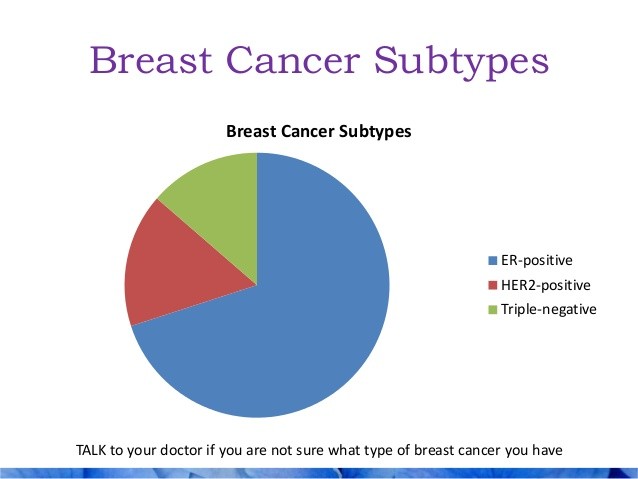Leave a Comment:
1 comment
[…] Synergistic, Integrative Approach to Breast Cancer […]
Reply
For advanced breast cancer chemotherapy is rarely curative. I don’t mean to sound so pessimistic but cancer survivors with certain cancers at advanced stages must face facts. Therefore it is in our interest to look beyond conventional FDA approved therapies for answers.
The studies linked and excerpted below suggest some possible solutions to this problem. Integrative therapies can enhance the efficacy of conventional chemotherapy. Non-toxic therapies such as chrysin, silibinin, vitamin D3, omega 3 fatty acids and ATRA can work synergistically together and also enhance the efficacy of conventional chemotherapy.
I am a long-term cancer survivor of an “incurable” cancer called multiple myeloma. Thinking outside the box is the reason why I am writing this blog post more than 20 years after my diagnosis. I am also a cancer coach. I have researched and experienced a great deal about cancer since my diagnosis in 1994.
Scroll down the page, post a question or comment and I will reply to you ASAP.
Thanks
Recommended Reading:
“Objective: Breast cancer is one of the most significant causes of female cancer death worldwide. Although several chemotherapeutics have been developed to treat this type of cancer, issues remain such as low survival rates and high reoccurrence after chemotherapy and radiotherapy.
To explore a chemopreventive approach to enhancing breast cancer treatment efficacy, the antiproliferative effects of a combination of chrysin and silibinin, two herbal substances, in T47D breast cancer cells were assessed…
Results: Cell viability assays revealed that chrysin or silibinin alone inhibited proliferation in a dose and time-dependent manner, and combining the drugs synergistically induced growth inhibition in the breast cancer cell line…
Conclusion: The data provide evidence that synergistic antiproliferative effects of Chrysin and Silibinin are linked to the down-regulation of cyclin D1 and hTERT genes, and suggest that their combination may have therapeutic value in treatment of breast cancer.
“BC is a leading type of cancer in women and generally classified into three subtypes of ER+ /PR+ , HER2+ and triple negative. Both omega-3 polyunsaturated fatty acids and vitamin D3 play positive role in the reduction of breast cancer incidence…
In this study, we show that the combination of ω-3 free fatty acids (ω-3 FFAs) and 1α, 25-dihydroxy-vitamin D3 (VD3 ) dramatically enhances cell apoptosis among three subtypes of BC cell lines. Bcl-2 and total PARP protein levels are decreased in combined treatment MCF-7 and SK-BR-3 cells. Caspase signals play a vital role in cell apoptosis induced by combination…
“The combined treatment of ω-3 FFAs and ATRA resulted in cell cycle arrest. ω-3 FFAs combined with ATRA synergistically provoked cell apoptosis via the caspase signals but not p53. These findings suggest that combined chemotherapy of ω-3 FFAs with ATRA is beneficial for improvement of ATRA sensitivity in BC cells…”
“Background- Curcumin is herbal compound that has been shown to have anti-cancer effects in pre-clinical and clinical studies. The anti-cancer effects of curcumin include inhibiting the carcinogenesis, inhibiting angiogenesis, and inhibiting tumour growth. This study aims to determine the Clinical effects of curcumin in different types of cancers using systematic review approach…
Results- The results are derived based on several clinical studies on curcumin consumption with chemotherapy drugs, highlighting that curcumin increases the effectiveness of chemotherapy and radiotherapy which results in improving patient’s survival time, and increasing the expression of anti-metastatic proteins along with reducing their side effects.
Conclusion-The comprehensive systematic review presented in this paper confirms that curcumin reduces the side effects of chemotherapy or radiotherapy, resulting in improving patients’ quality of life. A number of studies reported that, curcumin has increased patient survival time and decreased tumor markers’ level.”
“Numerous studies have shown that curcumin, a natural compound, exerts anticancer effects by inhibiting cancer cell proliferation and metastasis and by inducing cell cycle arrest and apoptosis. In particular, curcumin exhibits potent inhibitory effects on breast cancer, the most prevalent type of cancer among women worldwide.
It has low maximal inhibitory concentration for breast cancer cell lines that express the hormone receptor ER and sensitizes cell lines to anticancer drugs.
Moreover, it can induce apoptosis in cell lines independently of hormone receptor expression. In addition, curcumin inhibits the proliferation of breast cancer stem cells (BCSC), an important factor that influences cancer recurrence.
The inhibition of BCSC proliferation suppresses metastasis and reattachment, ultimately limiting tumor formation. A xenograftstudy similarly showed that curcumin exerts tumor-suppression effects on cancer cells and cancer stem cells. Therefore, curcumin is a potential anticancer compound, and its concurrent application with other anticancer drugs appears promising.”
[…] Synergistic, Integrative Approach to Breast Cancer […]
Reply